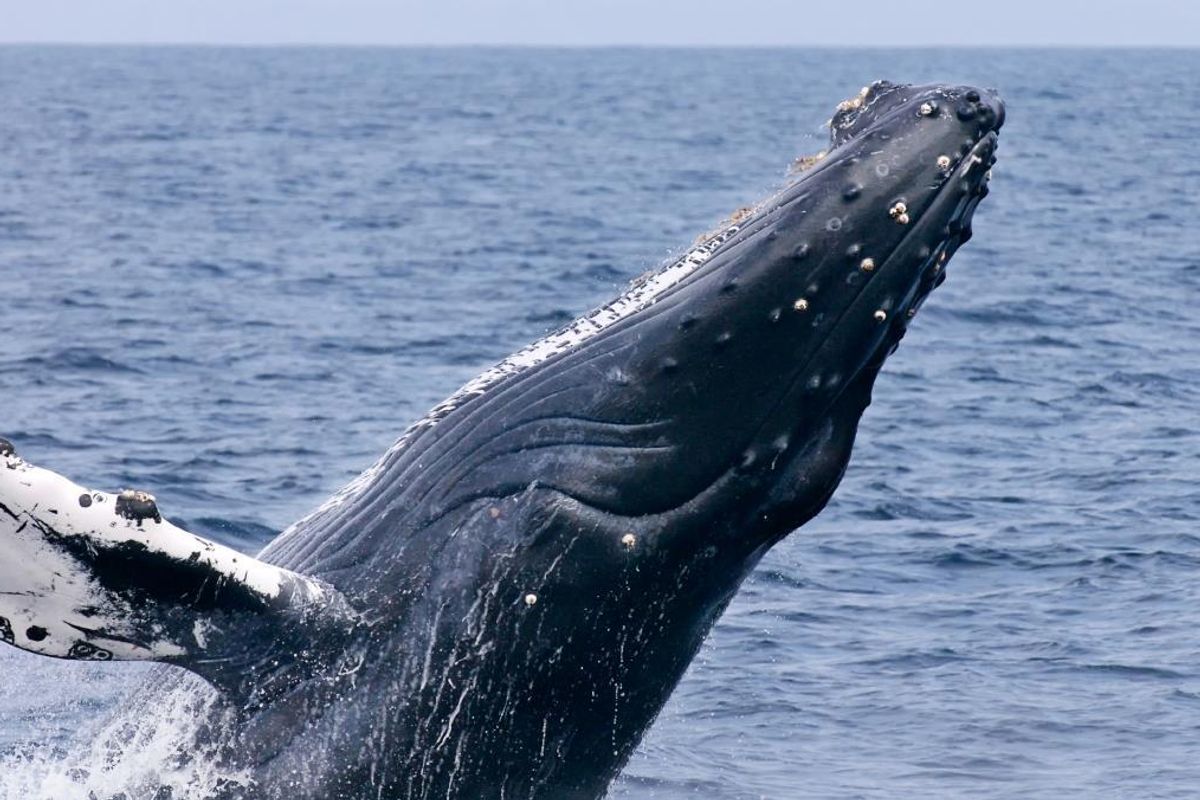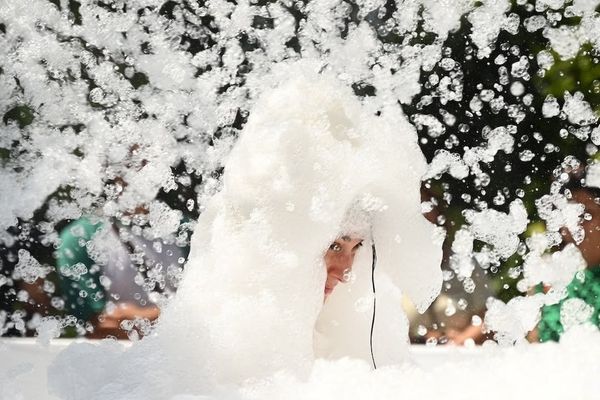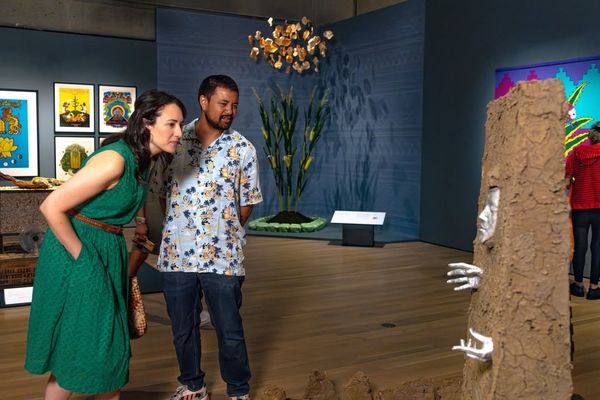Is it a bird? Is it a plane? Not quite: It's 44-ton marine mammal.
This year's gray whale migration up the California coastline will go down in history as one of the most violent, naturally occurring marine bloodbaths in recent memory. Gray whale calves (cetaceans still nursing from their mothers) have been unusually delectable to the killer whale palate of late: As of today, four gray whale kiddos have succumbed to brutal attacks from a pod of belligerent orcas, numbering only nine strong.
"This has never happened in my 30 years [of research]," Nancy Black, a marine biologist with Monterey Bay Whale Watch, told SFGate, further embellishing the frequency of the pod's murder streak as "remarkable" and "unprecedented."
But, a group of blow-hole heroes has arrived on the scene: Monterey's resident humpback whales.
Just this past year, scientists began speculating that humpback whales may, indeed, be more human-like than we previously thought. Altruism—the selfless belief of helping another, unrelated sentient being for nothing in return—was theorized to be a behavioral characteristic shared only by human beings and great apes. Now, however, it's become abundantly clear that magnanimous acts are being performed miles from the nearest sandy beach.

"Humpbacks like to interfere with the killer whales for some strange reason," Black adds. "They seem to want to protect the [gray whale calves]." Other accounts of humpbacks helping gray whales have been well recorded, too—so it looks like these aren't isolated incidences. Perhaps good deeds really are contagious.
Check out the video below to see these saline superheroes in action!





















